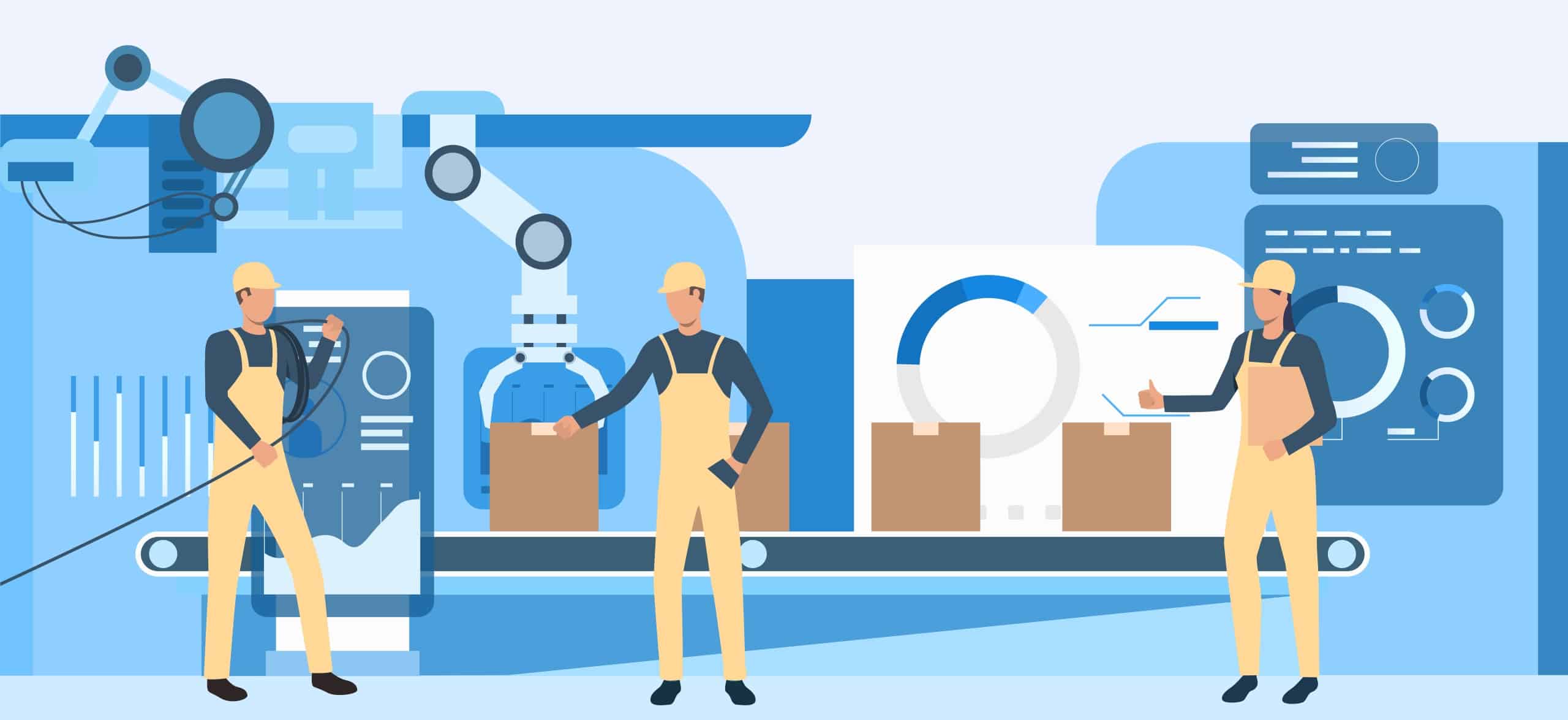The Rise of Modular Machinery in Wet Wipes Manufacturing
The manufacture of wet wipes is being revolutionized by modular technology, which provides unparalleled flexibility and scalability. Modular systems, as opposed to conventional equipment, consist of replaceable pieces that are simple to modify or reconfigure to satisfy particular production requirements. This adaptability is crucial since customer tastes are changing quickly, forcing wet wipes manufacturers to provide a greater variety of goods—from specialty formulas to biodegradable wipes—without having to invest in additional wet wipes manufacturing lines. Companies that use modular technology can swiftly adapt to market needs by switching between product kinds with little downtime and high levels of efficiency.
Modular equipment not only provides flexibility but also considerable cost savings. Wet wipes manufacturers may add or replace individual modules to increase capacity or introduce new product kinds without having to buy whole new wet wipes manufacturing lines. Because wet wipes manufacturers only have to invest in the equipment they need at any given moment, this lowers their original capital investment as well as continuous operating expenses. Modular equipment is not only accessible to small and medium-sized enterprises but also allows bigger wet wipes manufacturers to maximize return on investment and manage their resources thanks to its gradual scalability.
Moreover, modular solutions are suitable for future-proofing industrial processes. Wet wipes manufacturers may simply modify their manufacturing lines by adding new modules or changing the current ones to meet changes as new technologies and regulatory requirements develop. This flexibility guarantees that businesses may maintain their competitiveness over time by continuously enhancing productivity, cutting waste, and implementing more environmentally friendly manufacturing techniques. Modular equipment is a wise investment for the future as well as a solution to the production problems of today.
Tailored Solutions, Optimized Costs
Wet wipes manufacturers may fine-tune their manufacturing lines based on unique product needs using tailored solutions made possible by modular technology, which maximizes costs and operating efficiency. Conventional manufacturing systems, which are often built for large-scale production, are not flexible enough to swiftly adjust to the demands of the market. Modular equipment, on the other hand, enables wet wipes manufacturers to design unique solutions that address several wet wipe categories, including antibacterial, eco-friendly, and sensitive skin-friendly wipes. Wet wipes manufacturers may optimize output efficiency, minimize waste, and guarantee that each step of the process is in accordance with the particular requirements of the product by customizing production lines for certain product categories.
Particularly alluring are the advantages of modular gear in terms of cost. Modular machinery allows for incremental investments, in contrast to traditional systems that need a large capital outlay for new production lines or equipment. Wet wipes manufacturers may begin with the basic modules required for their present operations and add more when the market demands them. Because of the reduced upfront expenditures and less financial risk associated with this “pay-as-you-grow” model, scaling operations is made simpler for both small and big companies. Furthermore, it eliminates downtime and avoids the high costs involved with redesigning conventional manufacturing lines since modules may be upgraded or reconfigured without requiring the replacement of complete systems.
Modular equipment also optimizes cost management by enhancing resource efficiency. Rather of requiring separate lines for every product variety, manufacturers may modify their equipment to accommodate varying batch sizes, formulas, and package designs. Because of its flexibility, operating expenses are further reduced by lowering the requirement for extra inventory, energy use, and human involvement. Because of this, wet wipes manufacturers are able to create goods of superior quality at competitive costs, guaranteeing their profitability while satisfying the wide range of consumer needs. Customized solutions made possible by modular equipment aim to increase production capacities while improving accuracy and cost-effectiveness.
Reducing Downtime and Increasing Efficiency
One of the most important aspects of maximizing industrial efficiency is minimizing downtime, and modular equipment is essential to accomplishing this. Even little modifications or repairs in conventional manufacturing settings may lead to a large amount of downtime, which can upset production plans and result in losses. This problem is lessened by modular technology, which enables wet wipes manufacturers to isolate and fix certain production line segments without having to shut down the whole system. For example, in the event that a module needs repair or replacement, it may be swiftly replaced without affecting the smooth operation of the remainder of the manufacturing line. Because of its versatility, there is less chance of interruption, which promotes continuous production and drastically lowers downtime.
Faster transitions between product kinds are also made possible by modular systems, which is a significant benefit in sectors where product variety is becoming more and more significant, such as the manufacture of wet wipes. Modular equipment makes it possible to quickly reconfigure manufacturing lines for various applications, such as transitioning from baby wipes to antibacterial wipes or modifying for changing container styles. Conventional equipment often needs a long setup period, which causes delays and lowers total productivity. Modular solutions, on the other hand, simplify this procedure and enable wet wipes manufacturers to react swiftly to customer and market developments. Without compromising production time, wet wipes manufacturers may boost productivity and seize new possibilities by reducing the time it takes to transition between goods.
Higher profitability is a direct result of the efficiency obtained by lowering downtime and facilitating quicker product changes. Wet wipes manufacturers may increase their total production capacity by producing more in a given amount of time by reducing the amount of time wasted to machine adjustments and maintenance. Furthermore, modular equipment may be utilized to launch novel items more quickly, providing businesses a competitive advantage, since it is designed to be flexible. In addition to lowering operating costs, the combined advantages of less downtime and higher efficiency guarantee that manufacturers can quickly satisfy market needs, which eventually spurs growth and profitability.
Scaling Production Without Scaling Costs
For wet wipes manufacturers, scaling up production may be difficult as old methods need large capital expenditures to increase capacity. But modular gear provides an affordable alternative, allowing wet wipes manufacturers to expand without having to bear the high expenses that come with expansion. When demand increases, companies may add individual modules to enhance capacity instead of buying whole new manufacturing lines. With this incremental strategy, businesses can grow gradually and make sure they only spend money on the equipment they really need at each level of development. By matching production capacities with market demand, modular equipment helps organizations avoid overinvestment and retain cost effectiveness.
The flexibility of modular equipment is one of its main benefits when it comes to growing output. Modular systems allow wet wipes manufacturers to swiftly adjust to changing needs, such as expanding into new markets, increasing production, or introducing new product varieties. A wet wipes manufacturer, for instance, may quickly add modules to handle various materials, package styles, or product compositions without needing to completely redesign the system. This adaptability helps organizations to react to market movements and opportunities quickly, ensuring that they can grow their operations effectively and capitalize on new trends without considerable interruption or investment.
Furthermore, even as output rises, producers may preserve operational efficiency by scalable using modular technology. Businesses may simplify their operations thanks to the modular architecture, which makes it simpler to handle larger quantities without requiring a lot of extra manpower or resources. By using effective production processes, companies may manage their operational expenses while maintaining output growth. Companies may preserve operational agility while meeting expanding demand, improving profitability, and staying competitive in a market that is becoming more and more dynamic via regulated and cost-effective production scaling.
Customization for Market-Specific Products
As customers increasingly look for specialized solutions to meet their individual demands, customization for market-specific goods has become a critical strategy for wet wipes manufacturers. This degree of personalization is made possible in large part by modular technology, which gives wet wipes manufacturers the freedom to create a broad variety of goods with different ingredients, sizes, and packaging styles. Modular solutions allow businesses to swiftly and effectively reconfigure manufacturing lines for a variety of products, including biodegradable wipes for environmentally aware customers and customized wipes for sensitive skin. In addition to enabling companies to serve certain market niches, this flexibility guarantees that they may quickly develop and launch new goods.
Tailored products are typically essential for breaking into new markets in an industry where regional tastes and laws might differ greatly. Modular machinery enables companies to adapt their wet wipes manufacturing lines to satisfy local regulations for packaging, labeling, and formulation without having to buy brand-new equipment. Different nations and regions may have different needs in these areas. For instance, it would be simple for a company entering an area with more stringent environmental rules to include modules for using less water or biodegradable materials. By allowing businesses to provide customized goods that precisely satisfy the needs of their target consumers while retaining the efficiency of a centralized manufacturing process, this capacity provides them a competitive edge.
Modular equipment allows for customization, which not only satisfies regulatory standards but also gives producers a competitive advantage over rival goods. Wet wipes manufacturers may more successfully target niche markets by developing wet wipes with certain attributes, such as increased durability, fragrance-free choices, or antibacterial qualities. Wet wipes manufacturers may effectively expand production of new bespoke items as demand rises thanks to modular systems, which enable smooth modifications to both production volume and product requirements. A company’s market position is reinforced and customer loyalty is elevated when it can reliably provide items that are exactly in line with the tastes and expectations of the customers.
Future-Proofing with Modular Machinery
Modular equipment is an effective instrument for future-proofing, which is a crucial factor for any companies hoping to maintain competitiveness in a rapidly changing market. Traditional production processes may soon become antiquated as customer expectations change and technology improves, necessitating expensive updates or replacements. On the other hand, since modular equipment is fundamentally flexible, wet wipes manufacturers can adjust to shifts in the market without having to completely redesign their wet wipes manufacturing processes. Wet wipes manufacturers may easily upgrade, add, or change specific modules to adapt their production capacities and make sure their gear is efficient and relevant for many years to come.
The ability of modular equipment to allow producers to easily incorporate new technology is one of the main ways it helps to future-proof manufacturing. Modular solutions facilitate the simple integration of automation, artificial intelligence (AI), and the Internet of Things (IoT) as these advances continue to transform production. For instance, adding a new AI-driven quality control module to an already-running manufacturing line may be done so with little to no disturbance. This keeps wet wipes manufacturers ahead of rivals who could be bound to less flexible systems by ensuring that they are continually armed with the newest tools to increase production, decrease waste, and improve product quality.
Modular technology is also very helpful in tackling new environmental issues, which are becoming more and more significant in a variety of sectors, including the production of wet wipes. Wet wipes manufacturers must have the agility to swiftly adapt as regulations pertaining to energy usage and eco-friendly material standards become stiffer. They may add additional parts to modular systems that promote sustainable behaviors, including modules made of biodegradable materials or energy-saving procedures. In addition to assisting businesses in adhering to rules, this flexibility helps them establish themselves as pioneers in sustainable manufacturing, attracting an increasing number of environmentally concerned customers. Thus, modular equipment not only future-proofs operations but also provides opportunities for long-term development and innovation in a dynamic environment.







